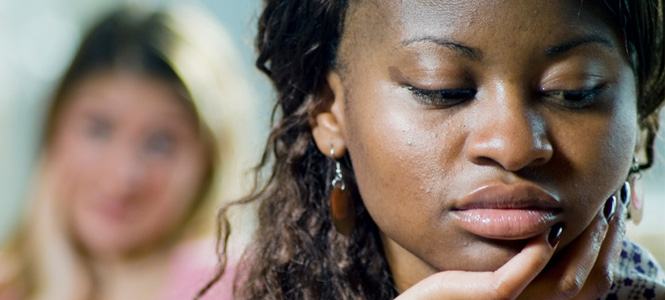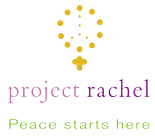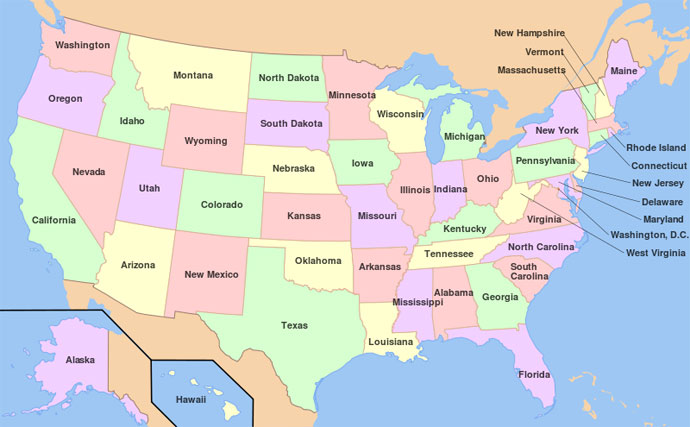
Karen is 23. She finished college last year and landed the job of her dreams in graphic arts. The work is creative and challenging. Karen is pretty and has many friends, so she is frequently included in the party circuit at work. She should be happy and excited. After all, her life is beginning just as she carefully planned it. But instead, she feels dead and dull inside. She keeps up with her job, but it doesn’t bring the joy she thought it would. She doesn’t feel as creative as she once was and doesn’t understand the dull distant sorrowing she feels despite her accomplishments.
Karen had an abortion in college. She thought she had a serious committed relationship with her boyfriend, but when she told him she was pregnant he was definitely less than happy about it. He told her the decision was up to her, but if she wanted an abortion, he would pay for it. She sensed his lack of commitment to her and his baby and decided on abortion. Two of her roommates had abortions and they seemed fine afterwards. What’s wrong with her that she feels so depressed about it?
Karen’s story is repeated every day across the country. Since 1973 when the Roe v. Wade decision legalized abortion, an estimated thirty-five million women in the United States have had one or more abortions. Since the 2022 Dobbs decision overturned Roe v. Wade, women have still obtained legal abortions in many
states. These were women who were challenged and stressed by the circumstances surrounding the pregnancy, and the people on whom they normally would rely for support in difficult circumstances were unable, unwilling, or unavailable to help with the crisis pregnancy. Boyfriends, even husbands, said they weren’t ‘ready for fatherhood.’ A woman who lacks the willing support and encouragement of the father to help raise the child is more likely to choose abortion.
Society tells young women like Karen that abortion will solve their problem. It says nothing about the problems abortion creates. Supporters of abortion claim it is a simple procedure with no lasting impact. And women who know better don’t discuss, certainly not publicly, how abortion changed their lives for the worse. They feel ashamed about the abortion and ashamed about their inability to ‘just deal with it’ as they think other women do. And so, the deception continues.
But although a woman’s mind may say one thing, her emotional life and her body cells say another. If she has the abortion, the very cells of her body remember the pregnancy and know that the process of change that had been going on was stopped in an unnatural manner. Her body and her emotions tell her that she is a mother who has lost a child. And so, it is not surprising that after the abortion, a pain begins to emerge from the depths of her heart. She has a loss to mourn but cannot allow herself to grieve. Grieving would require admitting to herself that a child was killed in the abortion and that she shares responsibility for her child’s death. This is a very heavy burden to bear, and so, she resorts to denial to cope: denial of the baby’s humanity, ‘it wasn’t a baby, so I have nothing to grieve or feel guilty about,’ and denial of her emotional pain. ‘I should feel okay about this,’ she reasons. ‘Everyone else does. I must not feel this way or think about the abortion.’
Abortion is an extremely unnatural experience for a woman’s body and her maternal instinct. Negative reactions are to be expected and do not depend on a person’s religious beliefs or general mental health. It is true that women and men with prior psychological problems or with strong religious beliefs are more vulnerable to problems after abortion, but there are repercussions for all women involved in an abortion. In a study done by Anne Speckhard, Ph.D., 85% of the women reported that they were surprised at the intensity of their emotional reaction to the abortion. These reactions included discomfort with children, feelings of low self-worth, guilt, feelings of anger, depression, grief, increased alcohol use, crying, inability to communicate and feeling suicidal. Yet 72% of the subjects reported no identifiable religious belief at the time of the abortion.
Abortion reactions are specific and identifiable. They originate mainly from the problem of denial and suppression of feelings. When we suppress one of our emotions it affects all of them. This is the basis of abortion trauma: the denial of the baby and the denial of our feelings. This causes symptoms of reexperience, avoidance and impacted grieving.
Reexperience: The abortion trauma can be reexperienced in a number of ways. Some women experience recollections and flashbacks of the abortion and dreams of the unborn child. Some experience intense psychological distress from people or things that remind them of the abortion, such as seeing pregnant women or passing an abortion facility. Intense grieving and depression may occur on the anniversary dates of the abortion or the child’s projected due date.
Many examples can be given of reexperiencing. A number of women I have worked with have difficulty having a cervical exam or going into a hospital. These events cause such anxiety that they are no longer able to tolerate them. Many women I know have nightmares about their abortion or the baby. One large Finnish study examining all suicides among women in an eight-year period found that women who had an abortion committed suicide at three times the rate of the general population and almost six times the rate of women who had given birth.
The pregnancy centers in the U.S. report that many women come into the centers pregnant again on the anniversary date of the abortion or on the date of the birth of the aborted baby. This may be an attempt to deal with the sadness of these days. A survey, done by Kathleen Franco, M.D. of the Medical College of Ohio, of 83 women who have had abortions, illustrates how widespread is the problem of anniversary reactions. Thirty of the respondents had experienced physical or emotional reactions on the anniversary of the abortion or the due date. These included problems such as suicidal thoughts, headaches, cardiac symptoms, anxiety, alcohol and drug abuse, or more verbal abuse toward their children.
Women also experience avoidance symptoms. These include avoidance of anything associated with the abortion trauma or numbing of the responsiveness that was present before the abortion. These include efforts to avoid or deny thoughts or feelings associated with the abortion; efforts to avoid activities, situations, or information that might cause a remembrance of the abortion; inability to recall the abortion experience or an important aspect of the abortion. Other significant symptoms include very diminished interest in significant activities, feeling of detachment or estrangement from others, withdrawal in relationships or reduced communication. Some women have restricted range of affect, such as an inability to have loving or tender feelings.
Karen, whom we met in the beginning of this article, is an example of problems created by avoidance. Although she has a good job and happy lifestyle, because she won’t allow her feelings of grief and guilt into consciousness, she cannot experience her full range of emotions. She needs to be on guard not to think about her abortion. As commonly happens, shortly after the abortion the relationship with the boyfriend ended. She could no longer relate to him. Women who have undergone abortion may be grouped as follows: 1) those who are suffering abortion reactions on an acute or chronic basis; and 2) those who have no identifiable problems now but are at risk at a future ‘stress time’ (such as a pregnancy, crisis in life, death of a loved one). Reactions may be severe or mild and they can vary over a person’s lifetime.
Sadly many women do not seek help for abortion-related problems until about five to twelve years after the abortion. In the intervening time they may suffer profoundly as some of these symptoms may periodically recur. Various methods may be tried to manage the resulting pain: alcohol, prescription drugs and illegal drugs, promiscuity, hyper-activity (workaholism), punishing oneself by being in an abusive relationship or developing eating disorders, for example. Others may attempt to replace the lost baby by becoming pregnant again, and others reenact both the pregnancy and abortion, hoping to make the experience routine and non-traumatic (or to punish themselves). Unfortunately, each of these strategies produces additional pain and problems.
Sometimes the reaction to abortion is very delayed. As we mature and have an opportunity to reflect on our life, we may regret our past decisions. Counselors sometimes encounter elderly women overcome with grief from the loss of a child to abortion that occurred many decades earlier, a grief that has been buried, more or less successfully, until then. A friend recently told me of a seventy-five-year-old woman she knew who sobbed uncontrollably over an abortion that occurred more than fifty years ago. She was never able to have another child and was facing the prospect of living her declining years alone.
The good news is that there is hope and healing for this woman, and all who have participated in abortion. The Catholic Church has long recognized abortion’s impact on women and their families and has offered compassionate and confidential help.
Project Rachel Ministry began in 1984 ago as an outreach of the Catholic Church to women, men and families who have been affected by abortion. The Church is a place of healing. It speaks the full truth: ‘If you have had an abortion, God’s mercy is great enough to forgive that, too.’ Jesus offers forgiveness and healing. He offers the hope and promise of resurrection and reunion with the child who is entrusted to the Father’s mercy.
In a ‘special message to women who have had an abortion’ in the Gospel of Life, Pope Saint John Paul II explains how the Church’s healing ministry can transform their lives:
The Church is aware of the many factors which may have influenced your decision, and she does not doubt that in many cases it was a painful and even shattering decision. The wound in your heart may not yet have healed. Certainly what happened was and remains terribly wrong. But do not give in to discouragement and do not lose hope. Try rather to understand what happened and face it honestly. If you have not already done so, give yourselves over with humility and trust to repentance. The Father of mercies is ready to give you his forgiveness and his peace in the Sacrament of Reconciliation. To the same Father and his mercy you can with sure hope entrust your child. With the friendly and expert help and advice of other people, and as a result of your own painful experience, you can be among the most eloquent defenders of everyone’s right to life. Through your commitment to life, whether by accepting the birth of other children or by welcoming and caring for those most in need of someone to be close to them, you will become promoters of a new way of looking at human life. – The Gospel of Life, 99.
The experienced, compassionate people of Project Rachel Ministry offer callers referrals to professional counselors or to priests specially trained for spiritual guidance and the Sacrament of Reconciliation. But everyone in the Church is a part of Project Rachel Ministry. Everyone is a part of the healing ministry of Christ. You may know someone whom you think has had an abortion. Many times, they think there is something wrong with them, but, they are suffering grief from the loss of their child. You never accuse or confront. Taking time to listen or a simple word that will touch their hearts and release them from fear and isolation can begin the healing process.
Mention the Church’s Project Rachel Ministry that offers confidential help for healing. Be ready with contact information for local help. Simply giving people information like this can help. Pray that they will eventually talk to someone, so that they can begin their healing journey to mercy, hope, and peace.
Sr. Paula Vandegaer (1939-2021) was a Licensed Clinical Social Worker, Executive Director of International Life Services and Editor of Living World magazine.

